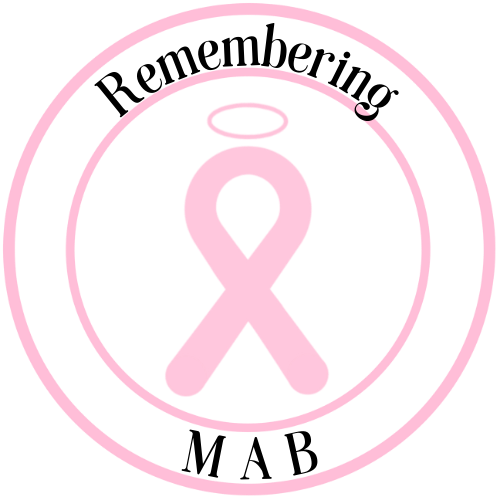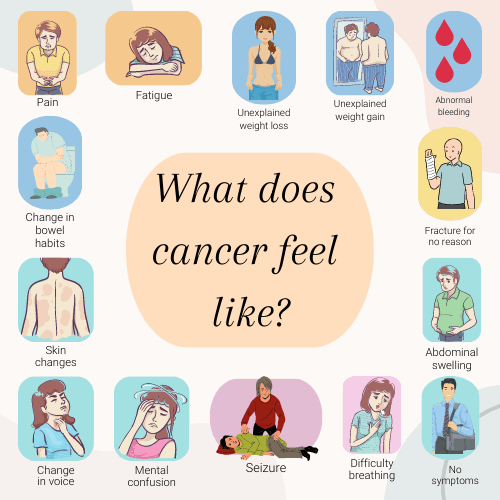Stepping into the Unfamiliar World of Cancer
What is cancer?
The medical definition of cancer states that cancer is cells that multiply uncontrollably and invade nearby tissues.
But when you asked what cancer is, you weren’t looking for a medical definition. What you are really asking is what does cancer mean to me, the cancer patient?
Cancer begins when something happens to a cell’s normal DNA which causes its genes to change. DNA is like a master file. It produces the same result every time. In other words, it reproduces the same cell every time.
Cancer cells start out as normal cells, but something happens to their DNA and their master file is not the same as normal cells anymore. Instead, these cancer cells now have a master file that is different from the genes of normal cells.
Let me try to explain cancer cells a bit differently
You begin a new job at a soup labeling company. You are shown how to add the ink into the machine that prints the labels. You fill up the yellow and blue dispensers which will mix to make the company’s green brand color.
You turn on the printing machine and each label comes out looking exactly like the one before it.
After an hour or so, you notice the green label color looks a bit off. You think maybe your eyes are playing tricks on you, so you take a quick break.
When you return from your break, you realize that your eyes were not playing tricks on you. The company’s green brand color is no longer green but yellow.
The green color mutated to yellow because the blue nozzle became clogged and quit working.
You unclog the nozzle, and the printing machine works properly once again.
Normal cells turn into cancer cells when something goes wrong with the genes of the DNA, like the printing nozzle did, and now the cancer cell is different from the normal cell.
What makes cancer cells different from normal cells?
As with our example above, not only do cancer cells look different, but they also act differently from normal cells as well.
Cells in the body are constantly being replaced. Either the cell becomes old and dies or is damaged so new cells are created to take their place. Each cell is created depending on its DNA.
DNA stands for deoxyribonucleic acid. This is the instruction of how to make cells. If your body needs to replace stomach cells, the cells will be stomach cells when they are done. If your body needs to replace skin cells, they will be skin cells when they are done, not stomach cells.
Normal cells divide (reproduce) in an orderly fashion and within boundaries or limits. The body makes just as many cells as are needed, then stops. It doesn’t make extra. When more cells are needed, that is when the body will make more new cells.
Also, normal cells stay in one place. They don’t travel to different parts of your body. When your body makes new stomach cells, they are in your stomach, not in your kidneys, for instance.
Cancer cells are not normal cells.
Firstly, cancer cells’ DNA is different from the cells they originated from because their genes have changed.
Secondly, cancer cells divide and multiply but do not stop multiplying like normal cells do.
Thirdly, cancer cells divide more quickly than normal cells do.
And fourthly, cancer cells can travel from where they began to other parts of the body. For instance, if cancer originates in the breast, but some of the cancer travels to the uterus, it is still breast cancer in the uterus, not uterine cancer. This is called metastasis when cancer starts in one part of the body then travels to a different part of the body.
It is possible to have two different kinds of cancer at the same time which each start from a different part of the body. Cancer can start in the breast and be breast cancer. And cancer can start in the uterus and be uterine cancer. This time the cancer that starts in the breast is not the same as the cancer in the uterus, so breast cancer did not metastasize to the uterus, the body has two separate kinds of cancer going on.
This is an over-simplified explanation of a very complex process. For more information read the article What is Cancer? by National Cancer Institute.
Why did I get cancer?
Unfortunately, there is no one reason why someone gets cancer.
Let’s look at some risk factors for cancer:
Older age – the longer you live, the more chances you have of a cell turning into cancer.
Family history of cancer – for instance the BRCA gene can run in families. This mutated gene puts female family members at risk for breast cancer.
Using tobacco – smoking tobacco puts you at risk for lung cancer while chewing tobacco puts you at risk for mouth cancer.
Some viral infections can cause cancer. HPV is one virus that can lead to cervical and other cancers.
Exposure to radiation like the ultraviolet rays from the sun can cause skin cancer.
What does cancer feel like?
Cancer can cause a variety of symptoms or no symptoms at all.
Here are some symptoms of cancer:
Pain
Fatigue
Unexplained weight loss
Unexplained weight gain
Abnormal bleeding
Change in bowel habits
Change in the appearance of a body part like skin or breast
Fracture for no reason
Abdominal swelling
Change in your voice
Mental confusion or headache
Seizure
Difficulty breathing
No symptoms
How do I know if I have cancer?
There is no one sign for cancer because cancer can begin anywhere in your body. And cancer can begin at any age. For this reason, it is important to go for regular cancer screenings and report any unusual symptoms to your doctor immediately.
If your doctor suspects you have cancer, they will order some tests to get more information. (Read: Is There a Cancer Test?)
Your doctor may do a biopsy if you have a suspicious lump. (Read: What Can You Tell Me About Biopsies?)
When all the testing is completed and you know for sure you have cancer, you will have even more questions.
Here are some questions you may already be asking:
Will cancer go away on its own?
No, cancer will not go away on its own. Like the example we looked at in the beginning of this article, when a mutation begins, it does not return to normal on its own.
We have heard stories of persons being told they have cancer and then the cancer disappears. Unfortunately, this is not the norm for cancer, but it is great for those who experience this.
Usually, cancer needs to be treated by an external means. The type of treatment required depends on many factors such as:
What kind of cancer is it?
What stage is the cancer in when it was discovered?
Where in the body is the cancer?
Do you even want to treat your cancer?
How is cancer treated?
Cancer can be treated in a variety of ways including chemotherapy, surgery, radiation, and a few more ways. You will discuss with your cancer care team what the best treatment options are for you.
My personal experience with cancer
I will relate some of my personal experience with cancer to show you how this article all comes together.
What is cancer?
For me, cancer was when some cells in my breast began to change and became breast cancer.
What makes cancer cells different from normal cells?
The cancer began as a barely noticeable “cyst”. Because the cancer cells were turned on and nothing told them to stop, they multiplied into a lump in my right breast.
Why did I get cancer?
I don’t know for sure why I got cancer. I did have a few factors against me though.
My mother had had breast cancer, but not the genetic kind that can be passed to other family members.
I was overweight at the time of my diagnosis.
I am a nurse and was working in the recovery room which can be stressful.
When I graduated from high school, I worked in a podiatrist’s office. One of my duties was to take x-rays. Unfortunately, I did not have the correct protective equipment (which I did not know I needed at that time) and was exposed to almost daily doses of radiation.
Did one of these, or all these factors play a role in me getting cancer? I don’t know.
What does cancer feel like?
My first symptom was pain. I have heard it said that cancer does not cause pain. Tell my right breast that. The tumor had begun to press on my breast tissue, and I felt pain. Sorry if that is not textbook.
How do I know if I have cancer?
Besides the pain I felt, my breast began to change in shape. That was when I knew that it was not from a breast cyst but was indeed cancer. (Read: The Day I Met Cancer in the Mirror)
Will cancer go away on its own?
I was sure hoping that it was just a cyst, and it would go away like all the other cysts had done. But not this time. It was cancer and had to be treated to make it “go away”.
How is cancer treated?
My breast cancer was treated with chemotherapy, then surgery, and then radiation treatments. My cancer was fed by estrogen, so I must take an estrogen blocker pill for ten years.
This article is intended to be an introduction into cancer, it is not an in depth explanation. Please consult with your cancer care team for more information on your specific type of cancer and cancer treatments
Comment below how this article has helped you better understand cancer.
Wishing you all the best,
Kelly
Are your cancer screenings up to date?
Yes, I am a nurse. No, I am not your nurse. The medical topics discussed in this, or any article on this site, are intended to be issues for you to discuss with your medical team if you feel they apply to you. None of the information you are about to read in this article is treatment advice for you from me. I do not have that authority.






Hi, I’m Kelly. I am here to help you and your loved ones navigate your cancer journey with information and encouragement.
I have been both a cancer patient and a cancer patient supporter. I get what you, the cancer patient, are going through. But I also get what you, the cancer patient supporters, are going through.
I wish I could take this nightmare you are experiencing and turn it into a pleasant dream.
But I can’t.
So, what I can do instead is infuse as much hope and determination as is possible into this website for you. Here you have a place to find inspiration and support. A place to turn the chaos of cancer care into clarity.
Yes, I am a nurse. No, I am not your nurse. The medical topics discussed in this article are intended to be issues for you to discuss with your medical team if you feel they apply to you. None of the information you read in this article is treatment advice for you from me. I do not have that authority.